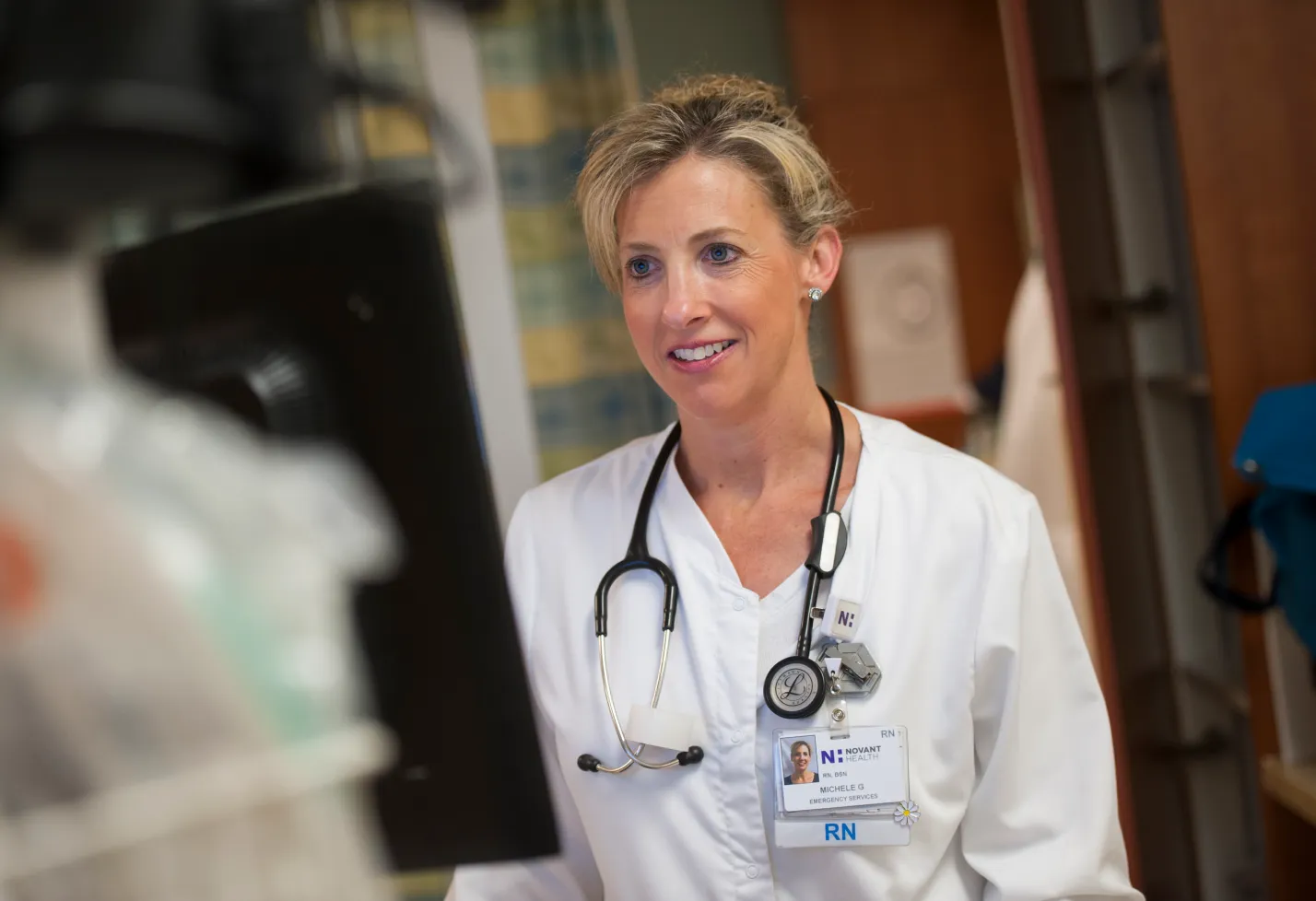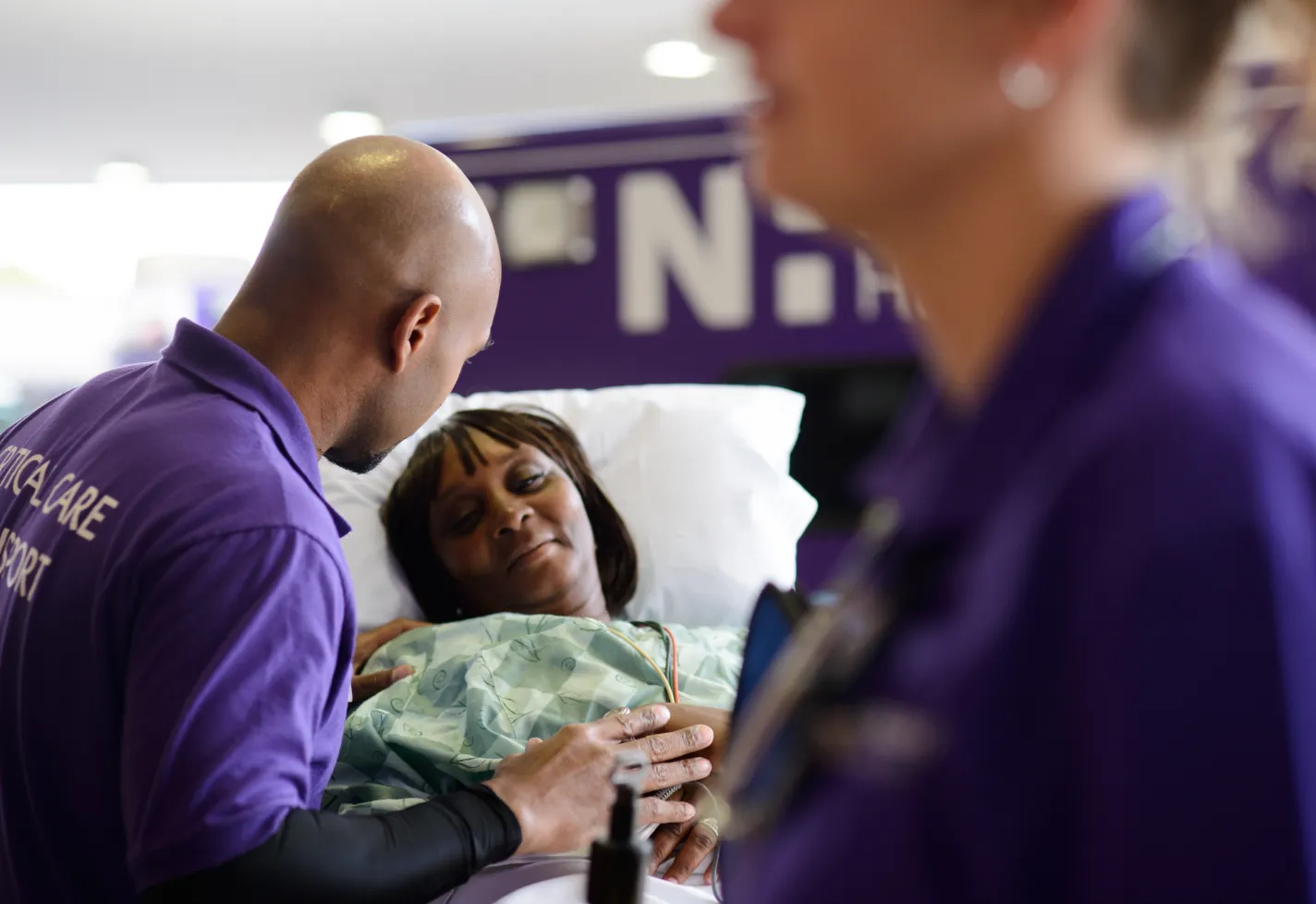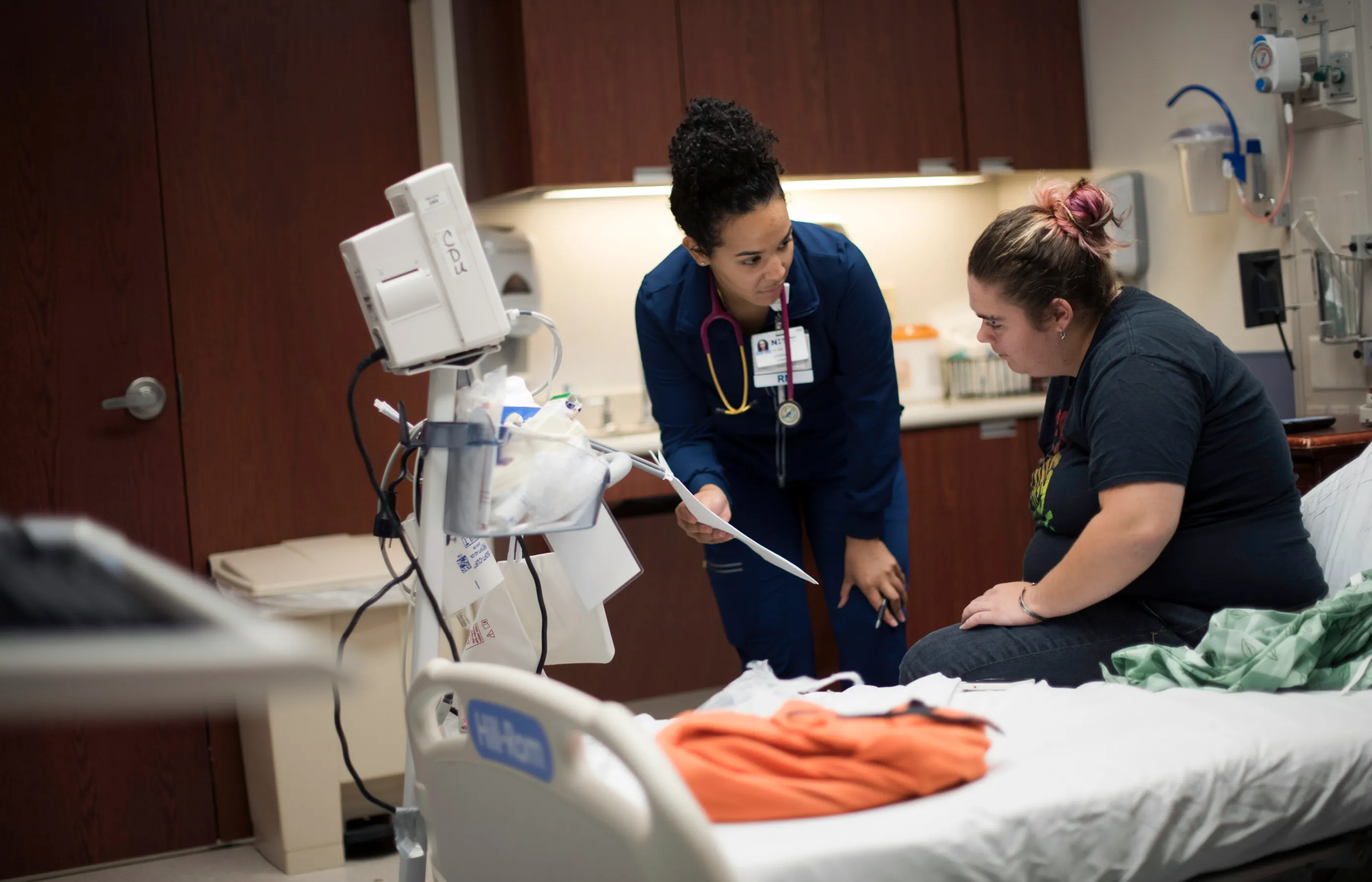What to Expect in our Emergency Rooms
Knowing our process can ease your mind.
When it comes to an ER visit, we want you to know what to expect when you visit. Here are a few processes we use to assist you and your loved ones when you need medical attention at Novant Health.
Check in
After you arrive and check in, a triage nurse will evaluate your situation to determine the urgency of your condition. At most of our locations, you will be taken to a treatment room where an experienced physician will examine you.
We may also offer you support from an interpreter, social worker or chaplain during your time in the emergency room. We see everyone as quickly as possible. However, we do treat the most critically ill patients first.

Treatment
While in the treatment room, a team of professionals works together to assess your medical need. They may need to order or perform laboratory tests, X-rays, CTs, MRIs or other tests to help diagnose and treat your condition. The tests may take time to complete.
We welcome visitors to the emergency room. However, we ask that no more than two individuals at a time visit with a patient.

Hospital Admission
If your emergency team decides you need a higher level of care, you will be admitted to the hospital. We will work with your primary care physician to coordinate your care in the hospital and after discharge.
If you are discharged from the emergency room, we will provide test results, treatment plan and a medical diagnosis to guide follow up care by your physician.

Novant Health provides treatment in a medical emergency, regardless of insurance status or the ability to pay.
Metal detection screening
Your safety is our top priority. We have a robust protection plan for safety in our emergency rooms, including security officers, metal detection, and innovative Fast Pass technology, our electronic visitor management system.
We are committed to providing the best care, welfare, safety and security to all patients and team members while they work and receive care at our emergency departments. Metal detection screening is a proven way to prevent persons from entering the facility with a dangerous weapon and is just one of many tools that our public safety team is using to help ensure a safe environment for everyone.
